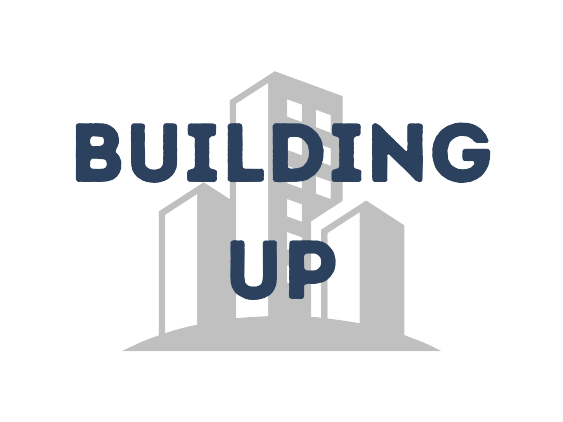Self-Awareness
Great leaders aren’t just skilled at making decisions or managing teams—they are also committed to their own growth. The best leaders recognize that there is always something to learn, always a way to improve, and always room to strengthen their relationships. This willingness to grow is at the heart of coachability.
Coachability is the ability to accept, process, and apply input to improve skills, behaviors, and performance. It is more than just listening to advice; it involves actively seeking insights, reflecting on them, and using them to grow personally and professionally.
Being coachable starts with self-awareness. Without it, feedback can feel like criticism rather than an opportunity to improve. Leaders who lack self-awareness often dismiss helpful input, repeat the same mistakes, or feel personally attacked when challenged. In contrast, self-aware leaders can distinguish between constructive insights and personal criticism, making it easier to adapt and lead effectively.
When self-awareness and coachability work together, leaders can:
Recognize gaps in their skills without feeling defensive
Apply insights objectively rather than reacting emotionally
Identify and correct blind spots before they create barriers
Self-Assessment: Self-Awareness
Please take a few moments to answer the following self-reflection questions. Where can you identify opportunities for personal growth in your leadership and coachability?
Do I take time to reflect on my emotions and actions, or do I move from task to task without considering how I respond to situations?
Can I accurately identify my strengths and areas where I need to grow as a leader?
When I receive constructive feedback, do I notice any emotional reactions like defensiveness, frustration, or shutting down?
Do I recognize patterns in my leadership style that may impact my ability to receive or apply feedback?
How often do I consider how my tone, body language, and communication style influence whether people feel comfortable giving me feedback?
Am I aware of my emotional triggers—the situations or types of feedback that cause strong reactions in me?
Have I ever been surprised by feedback about my leadership or communication? If so, what does that tell me about my blind spots?
How often do I intentionally ask myself, “Am I showing up as a leader who is open to learning and growth?”
Remember, this self-assessment is just a starting point for developing self-awareness as a leader. It's essential to reflect on your responses and actively work on areas where improvement is needed. Additionally, seeking feedback from others and working with your ECFL Leadership Coach can provide valuable insights into your emotional intelligence strengths and weaknesses.
“You cannot change what you refuse to confront.”
Being coachable starts with understanding yourself. Leaders who lack self-awareness may struggle to recognize how their behaviors impact others, making it harder to grow. Without self-awareness, it is easy to overlook blind spots or repeat the same mistakes. Leaders who take time to reflect on their actions can assess their reactions and make intentional improvements.
Self-Awareness Prepares You for Growth
Without self-awareness, you may not realize when you are getting in your own way. When someone points out something about your leadership style, do you:
Feel the need to explain yourself rather than consider their perspective?
Get frustrated and mentally check out of the conversation?
Assume the other person does not understand what you were trying to do?
These reactions are common but can hold you back. Self-awareness helps you recognize them and shift your mindset. Instead of resisting, you can pause and ask:
What can I learn from this?
Is there truth in this that I might not want to see?
How can I use this insight to improve?
When leaders develop self-awareness, they move past emotional reactions and focus on opportunities to learn.
Self-Awareness Strengthens Relationships
Have you ever worked with someone who did not realize how their actions affected others? Maybe they dominated conversations, ignored input, or came across as dismissive without realizing it. A lack of self-awareness can weaken trust and create tension.
Leaders who develop self-awareness:
Recognize how their emotions influence interactions
Take responsibility for their actions
Adjust their communication style based on the situation
When you understand how your actions affect others, you create an environment where people feel comfortable speaking up, collaborating, and contributing their best work. Strong relationships lead to better teamwork and results.
Self-Awareness Encourages Adaptability
No two situations are the same, and being coachable means staying open to new challenges and perspectives. Self-aware leaders can:
Recognize when they need to adjust their approach rather than forcing their way through
Accept when something is not working and look for solutions instead of assigning blame
Learn from past mistakes rather than repeating them
For example, imagine you are leading a project and a team member says, “I feel like you make decisions without hearing us out.” A self-aware leader would pause, reflect, and consider how to adjust. Small shifts, like asking for input before finalizing a decision, can make a big impact.
“The more reflective you are, the more effective you are.”
Scenario: The Foreman Who Overestimated His Approachability
Jamie, a foreman, believes he is approachable. He keeps conversations short and direct, assuming his crew appreciates efficiency. If someone has a problem, they will just say it. At least, that is what he thinks.
One day, after an employee survey, he is surprised to see comments like “Jamie always seems too busy to listen” and “I feel like he is annoyed when I ask questions.” He shakes his head. That is not true. I tell people they can come to me anytime. But the comments stick with him.
That night, he is watching a show where a manager is giving instructions without looking up from his phone. The employees hesitate before speaking, clearly unsure if he is actually listening. Jamie laughs at the scene but then pauses. Do I come across like that?
The Self-Awareness Moment:
The next day, Jamie starts paying closer attention to how he interacts with his crew. He realizes he rarely makes eye contact, crosses his arms when listening, and responds with quick, one-word answers. He is not intentionally shutting people down, but his body language and tone make him seem unapproachable.
Determined to adjust, he starts making small changes. He keeps his arms open, slows down his responses, and asks at least one follow-up question in conversations. Within weeks, he notices a difference. Crew members check in more often, offer suggestions, and seem more open. Jamie realizes that self-awareness is not just about what you say. It is about how you make others feel.
The lesson: Leaders with self-awareness are able to recognize how their tone, body language, and communication style affects others. Making adjustments in these areas can build trust, strengthen relationships, and improve teamwork.
Self-awareness does not develop overnight. It requires regular reflection and a willingness to recognize patterns in your behavior. Many leaders assume they are self-aware, but without intentional effort, it is easy to overlook habits that might be limiting growth.
The following best practices will help you strengthen self-awareness and become a more coachable leader:
Make Reflection a Daily Habit: Self-awareness improves when you take time to reflect on your actions and decisions. Even five minutes at the end of the day can help you recognize patterns in your behavior.
Ask yourself, How did I handle challenges today? Was I patient and open, or did I react emotionally?
Think about how others responded to you. Did people seem comfortable sharing their thoughts, or did they hold back?
If there was conflict or miscommunication, consider what role you played. What could I have done differently?
Over time, regular reflection will help you spot trends in your leadership style and identify areas for improvement.
Identify Your Emotional Triggers: Everyone has situations that bring out strong emotional reactions. Some feel frustrated when plans change unexpectedly, while others get defensive when their ideas are challenged. Recognizing these triggers helps you manage your responses instead of reacting automatically.
When you feel frustration, stress, or impatience, pause and ask yourself, What about this situation is making me react this way?
Instead of reacting immediately, take a moment to breathe and consider your next step. A short pause can help you respond with intention instead of emotion.
Managing emotional reactions allows you to stay present in conversations and make better leadership decisions.
Seek Input from Trusted Colleagues: Even the most self-aware leaders have blind spots. The best way to uncover them is to ask people you trust for their perspective.
Choose a mentor, supervisor, or colleague you respect and ask, Is there anything about my leadership style that I might not be seeing?
Use open-ended questions to invite honest responses, like How do you experience my leadership? or What is one thing I could improve in how I communicate with the team?
When you receive input, resist the urge to explain or defend yourself. Instead, listen, reflect, and look for patterns.
Seeing yourself through the eyes of others can help you make meaningful adjustments.
Be Intentional About Your Communication Style: Self-aware leaders understand that communication is not just about what they say, but how they say it. People will often react more to your tone, facial expressions, and body language than to the words you use.
Pay attention to nonverbal signals. Do you cross your arms when listening? Do you avoid eye contact during conversations?
Notice how your tone of voice changes in different situations. Does it shift when you are feeling impatient or frustrated?
Before important conversations, consider how you want to come across and adjust accordingly.
Simple changes in body language and tone can make a big difference in how others perceive you and how comfortable they feel speaking with you.
Set a Personal Growth Goal: Self-awareness improves when it is tied to specific actions. Instead of trying to change everything at once, choose one area to focus on and set small, measurable goals.
If you tend to dominate conversations, commit to asking more questions before giving your opinion.
If you struggle with emotional reactions, challenge yourself to pause before responding in difficult situations.
If you have received feedback that you seem unapproachable, work on making eye contact and actively listening in conversations.
Tracking your progress will help you stay accountable and make real improvements over time.
Developing self-awareness is an ongoing process, not a one-time exercise. The more you practice these strategies, the more naturally they will become part of your leadership approach. In the next lesson, we will explore how ego can become a barrier to growth and what leaders can do to stay open-minded and adaptable.
Reflection Questions:
How do your emotional reactions influence your ability to accept feedback? Consider specific scenarios where you received feedback and analyze your response.
What strategies can you use to uncover blind spots in your leadership? Identify who you can ask for input and what areas you’d like to explore.
How can self-awareness help you become more coachable and open to growth?
In what situations do you find it most difficult to be self-aware? Why?
To push your understanding of Self-Awareness to the next level, explore these valuable resources. They’ll help expand your skills and provide essential tools for building strong leadership.
What Self-Awareness Really Is (and How to Cultivate It)
Daniel Goleman Introduces Emotional Intelligence (5:31)
Self-Awareness And Coachability: The Two Most Important Leadership Traits
Why Coaching Should Begin with Self-Awareness and Emotional Intelligence








